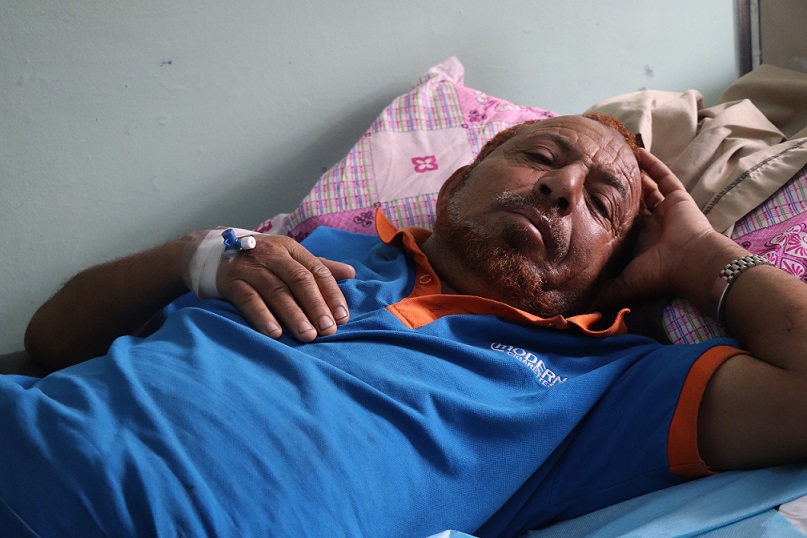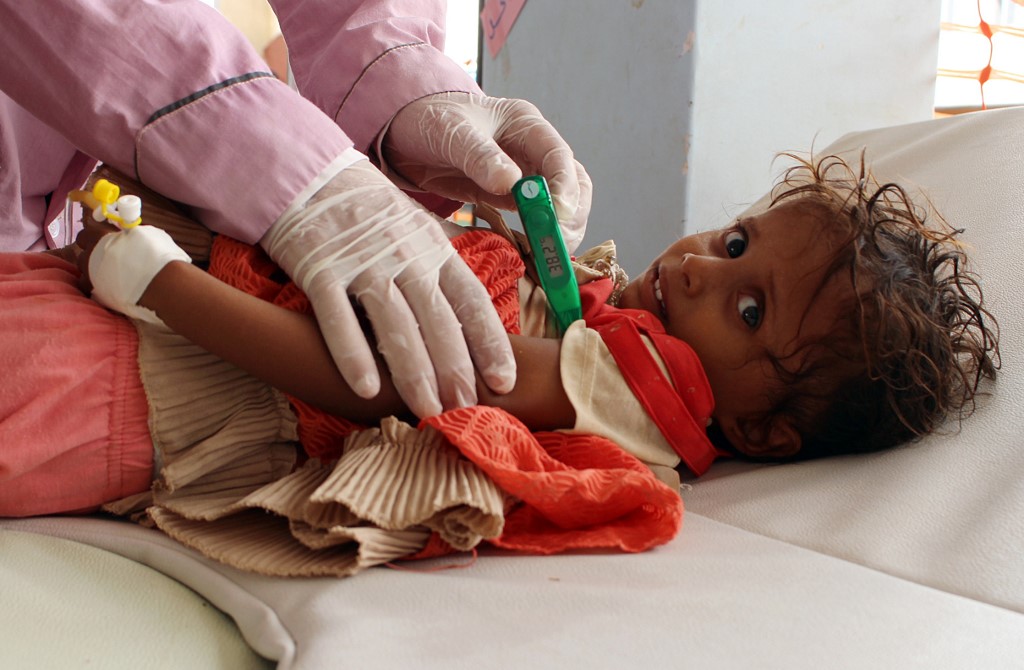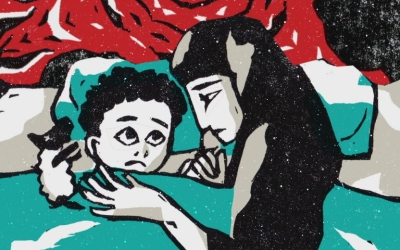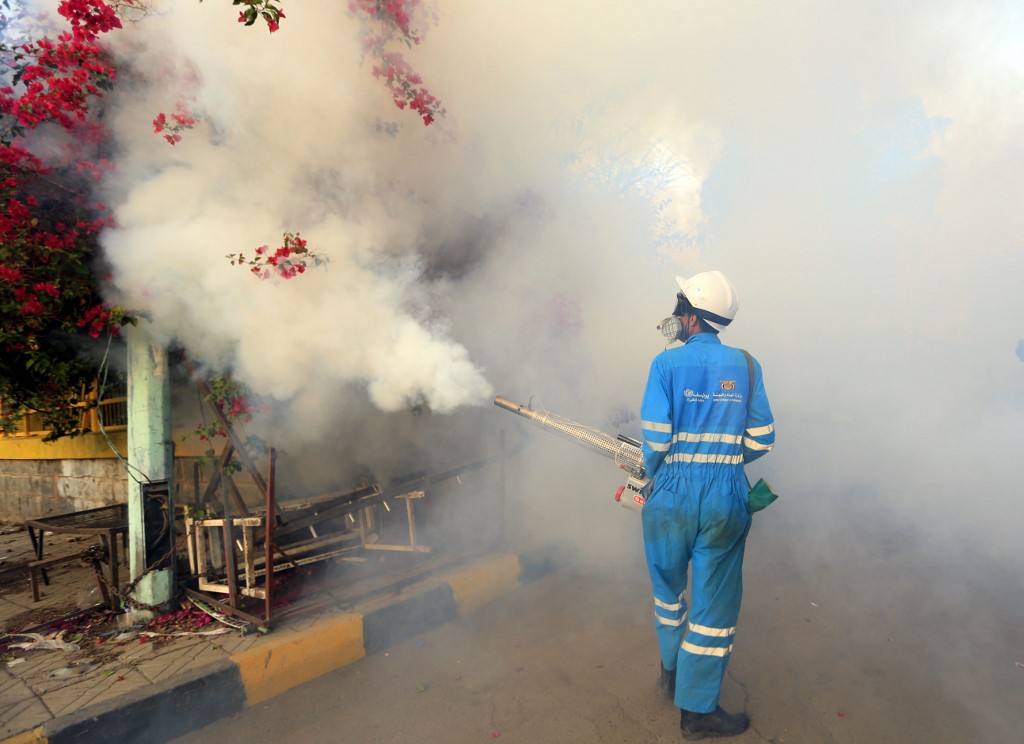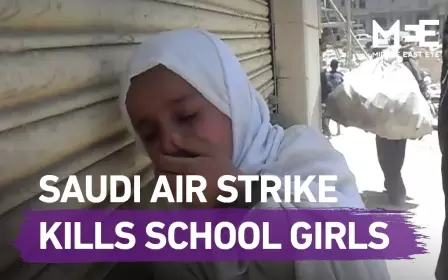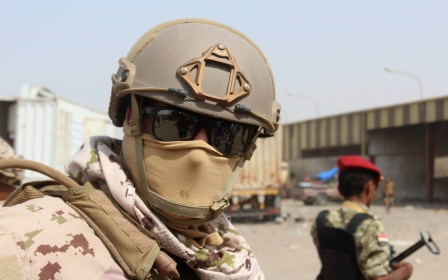Yemen: Deadly cholera outbreak may worsen, Oxfam warns
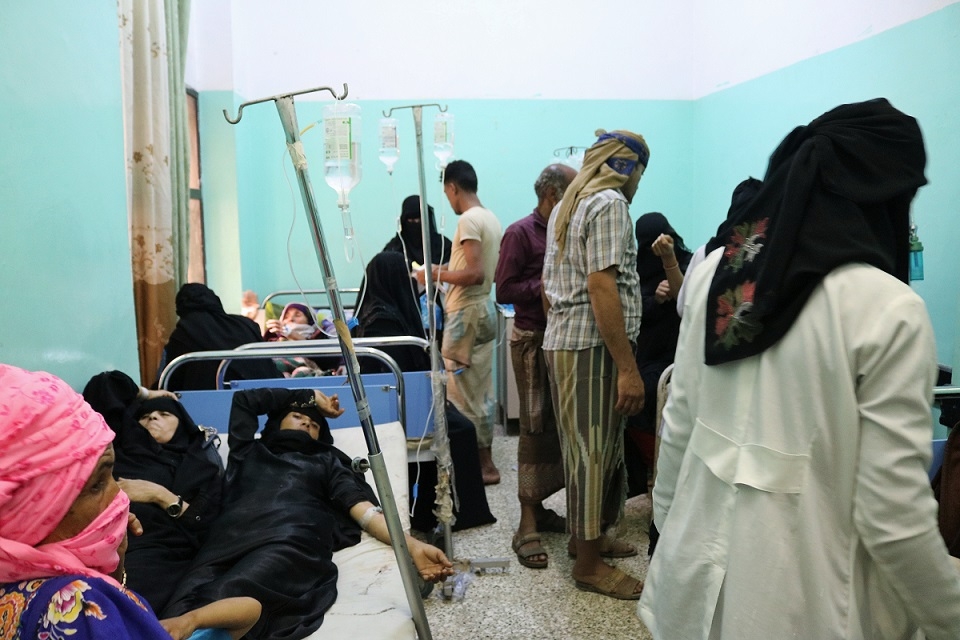
Mohammed Nagi was in his 50s when he first learned what cholera was.
It was 2016 when the disease first appeared in the city of Taiz, he said. With the war raging across the country, basic services like electricity and sewage treatment were sporadic in the city of around 2.6 million people.
'I lost hope that I would live, but I was lucky to recover'
- Mohammed Nagi, cholera survivor in Yemen
When the rainy season started in March, contaminated water spread everywhere, flooding streets covered in trash. Without access to clean drinking water, some thirsty residents bottled up the water and drank it.
So for three straight years, each rainy season has brought the spread of the disease to Taiz and other Yemeni cities. Yet despite watching the infection spread around him, Nagi had no idea that he, too, had also fallen victim this week.
On Monday, he started to have diarrhoea and vomiting. By Tuesday, a neighbour in the outskirts of Taiz urged him to seek help at a cholera treatment centre.
New MEE newsletter: Jerusalem Dispatch
Sign up to get the latest insights and analysis on Israel-Palestine, alongside Turkey Unpacked and other MEE newsletters
“I was about to die from diarrhoea and vomiting,” he told Middle East Eye on Wednesday, laying in a bed in the centre at the Republican Hospital in Taiz, alert after falling unconscious hours earlier. “I lost hope that I would live, but I was lucky to recover.”
Nagi was, in fact, lucky. At the hospital, dozens of patients arrive daily suffering from cholera and receive free medicine. But many Yemenis cannot afford to pay for transportation to centres like this – and others are simply unaware of the dangers.
And as Yemenis struggle to reach hospitals and clinics, aid workers are also facing challenges – from fighting, to checkpoints, to permits required by warring parties – to get to almost 40,000 people suspected of having the disease, Oxfam warned on Thursday.
The restrictions on access come just ahead of this year’s rainy season and as Oxfam says cases in the last two weeks of March were up from 1,000 a day in February to 2,500 in suspected cases being reported each day.
If suspected new cases continue to be identified at the current rates for the rest of the year, says Oxfam, the cholera outbreak will surpass levels seen in 2017 when the World Health Organisation (WHO) described the spread in Yemen as the worst in human history.
“With jobs destroyed and salaries unpaid, the role of aid agencies operating in Yemen providing people with clean water, food and medical help is more vital than ever,” said Muhsin Siddiquey, Oxfam’s Yemen country director, in a statement.
“Imposed delays on the delivery of aid threaten the lives of over a million Yemenis already exhausted by four years of war.”
The health warnings come as US President Donald Trump vetoed on Tuesday a congressional resolution that sought to end US involvement in the Saudi-led war in Yemen.
Malnourished children most vulnerable
According to Oxfam, more than 3,000 people have died of cholera since the outbreak – currently the world’s largest - began in Yemen in 2016.
'Nearly one-third of the reported cases are children under the age of five years old'
- Geert Cappelaere, Unicef, and Dr Ahmed al-Mandhari, WHO
The disease is one of inequity, according to the WHO’s Global Task Force on Cholera, striking the world’s poorest and most vulnerable people even while it is preventable with modern medicine.
Since January, cholera has spread to 22 out of 23 of Yemeni governorates with new victims each day, according to the WHO's Yemen Health Cluster.
Nearly 200 people have died this year of conditions associated with cholera and around 195,000 people are suspected of having contracted the disease - at least 38,000 of whom are in districts that are hard for aid agencies to reach, according to Oxfam.
Meanwhile, fighting continues in Hodeidah, Taiz and Hajjah, three of the governorates where the majority of deaths associated with cholera have been reported.
The outbreak comes at a time when Yemen’s healthcare system is almost totally collapsed after four years of war. Health services are limited and there is a severe shortage of medications as well as cholera diagnostic tests.
Anyone can be infected by cholera which kills rapidly, but children with severe acute malnutrition – estimated to number over three million in Yemen under the age of five right now according to UN humanitarian agency OCHA – are particularly vulnerable.
A malnourished child is 6.3 times more likely than others to die from diarrhoea, according to Save the Children.
“Nearly one-third of the reported cases are children under the age of five years old,” according to a statement last month from Geert Cappelaere, Unicef regional director in the Middle East and North Africa and Dr Ahmed al-Mandhari, WHO regional director for the Eastern Mediterranean.
“We fear that the number of suspected cholera cases will continue to increase with the early arrival of the rainy season, and as basic services, including lifesaving water systems and networks, have collapsed.”
Saved by a generous man
At the same treatment centre with Nagi is wide-eyed four-year-old Abdurrahman Thabet.
“My wife suffered from severe fever when she was pregnant with Abdurrahman and I could not take her to hospital so she did not breastfeed the child well,” Abdurrahman’s father, Ahmed, told MEE.
Many children from the Gabal Habashi district in Taiz province where the Thabets are from suffer from malnutrition and also from symptoms of cholera, Ahmed said.
Some recover without medicine, but others live with difficult symptoms. A rare few die.
“It is difficult to find work nowadays so I am struggling to feed my family and cannot pay for medicines. Medicine is not a priority for needy people like us,” he said.
Abdurrahman was, in fact, only able to get treatment when a stranger saw the child suffering and offered to pay for the family to travel the 50 kilometres to Taiz City, his father said.
“The generous man helped us to save our son and now doctors want us to go to a nutritionist, but that costs so much and we cannot pay,” he said. “If there is another generous man who can help us to stay in the city and will pay for treatment of malnutrition, we will stay.”
Suad Kamel, one of the doctors who treats cholera at the Republican Hospital, said most of the patients she sees are from poor families living in rural areas.
“People were deprived from basic services like clean water and they try to collect the rainwater in open containers and they can’t buy soap. All this leads to carelessness with personal hygiene,” Kamel told MEE.
“There are also displaced people living in makeshift camps and this is aggravating the problem as usually people do not care about personal hygiene in those camps.”
Despite the challenges facing international aid organisations, she said they are the best hope to stop the spread of the disease.
Mohammed, still recovering in his bed with an IV drip in his hand, said his biggest worry was the country’s future.
“I am not worried about myself and the old people. I am worried about the children who represent most of the patients in this centre,” he said. “I hope they will all recover from cholera and they will be the men of the future.”
- With additional reporting from Taiz
Middle East Eye delivers independent and unrivalled coverage and analysis of the Middle East, North Africa and beyond. To learn more about republishing this content and the associated fees, please fill out this form. More about MEE can be found here.


